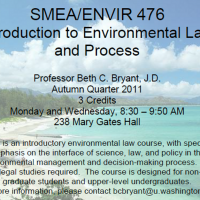Mark your Calendars!
Friends of the Cedar River Watershed presents…
Premiere Screening
Watershed Report 2010 Update
Thursday, September 8, from 6:00-8:00 PM
Seattle REI flagship Store
Films! Finger Food Feast! And the Future of our Watershed!
It only happens once each year. This is your exclusive invitation to the annual screening of the Watershed Report updated with all new stories from our 2010 survey. Nineteen high school students from seven different school districts, plus the private school network, will preview a short series of videos tracking positive sustainability policy trends in the 27 cities, two counties and 13 school districts of our watershed, the greater Cedar River – Lake Washington Basin.
- Last year… our 2009 pilot won multiple awards.
- Last year… it was standing room only at the REI premiere.
- Last year… we reached 5,000 people. We want 10,000 this year.
You are the ambassador for the success of this program! Bring your top ten well-networked people to the Premiere Screening. Help us roll out the Watershed Report 2010 Update to your local city council, school board, chamber of commerce, Rotary and other civic leadership groups. We track policy. We showcase and broadcast best practices. Come experience these exquisite data narratives and the powerful voice of the next generation. Put the Watershed Report in service to your own sustainability and stewardship work plan. Puget Sound starts here!
Forward this message to your network today!
RSVP: contact Rebecca Sayre at 206.297.8141 or rebecca@cedarriver.org
Learn more about the Watershed Report: http://cedarriver.org/programs/watershed-report
Check out the award winning 2009 pilot here: http://www.youtube.com/user/FriendsOfCedar
Join us!
Serendipity Ancira, Shorecrest High School, Class of 2014
Jessica Basi, Liberty High School, Class of 2013
Josef Benzaoui, International Community School,Class of 2014
Carolyn Birkenfeld, Ballard High School, Class of 2014
Kevin Davis, Green River Community College, Class of 2010
Alyssa Deardorff, Interlake High School, Class of 2012
Conor Hammond, Tahoma High School, Class of 2014
Shanan Hopp, Tahoma High School, Class of 2013
Cassandra Houghton, Tahoma High School, Class of 2013
Margot Kelly-Hedrick, Mercer Island High School, Class of 2013
Michaela Koke, Nathan Hale High School,Class of 2011
Tyler Loughran, Mercer Island High School, Class of 2012
Chris Norgood, The Northwest School, Class of 2012
Ben Pedigo, Shorecrest High School, Class of 2014
Jayaram Ravi, Tahoma High School, Class of 2015
Alex Rockhill, Nathan Hale High School,Class of 2013
Clara Tibbetts, Tahoma High School, Class of 2012
Tho Tron, Lakeside School,Class of 2013
Sergio Urrutia-Oyer, Tahoma High School, Class of 2013
Kendall von Michalofski, Tahoma High School, Class of 2013
About Peter Donaldson
Peter is the Executive Producer for the Watershed Report, a sophisticated “Community Curriculum” strategy from the Friends of the Cedar River Watershed. Peter has taught elementary through college creating myriad school partnerships around curriculum integration, story-telling and authentic assessment. In 2010 he was recognized as the Non-Formal Environmental Educator of the Year by the Environmental Education Association of Washington. He was appointed Distinguished Scholar to the Dan Evans Chair for the Liberal Arts at The Evergreen State College in 2008 and is currently collaborating with Antioch University to develop a teacher endorsement for Environmental and Sustainability Education. Peter has authored 17 plays for young audiences and was recognized as National Youth Theater Director of the Year by the American Alliance for Theater and Education. He tours a one-man show called Salmonpeople.

